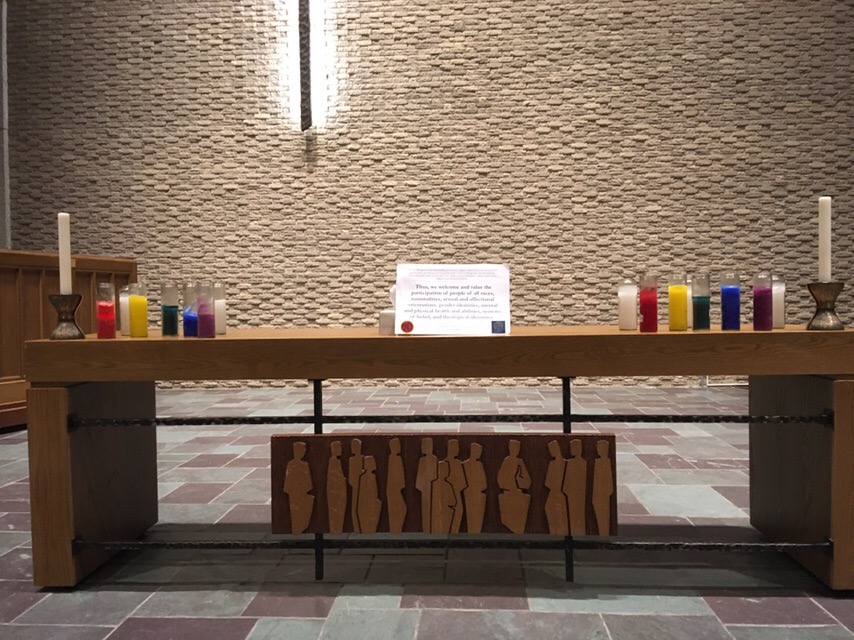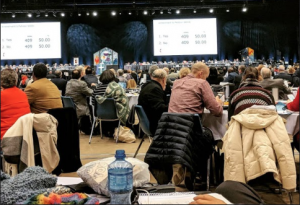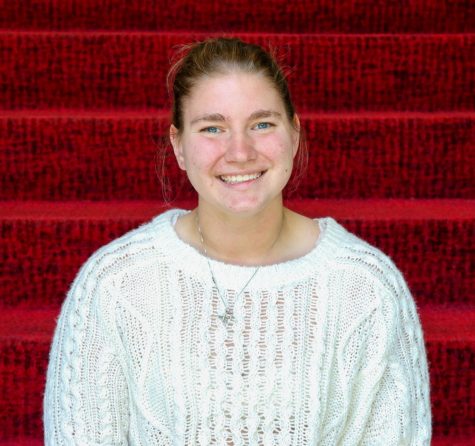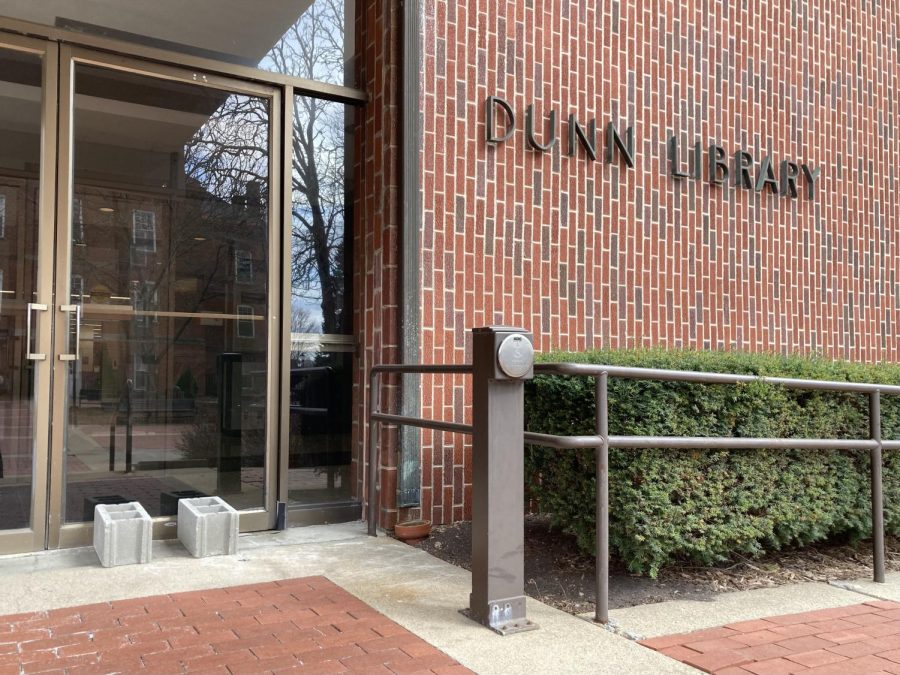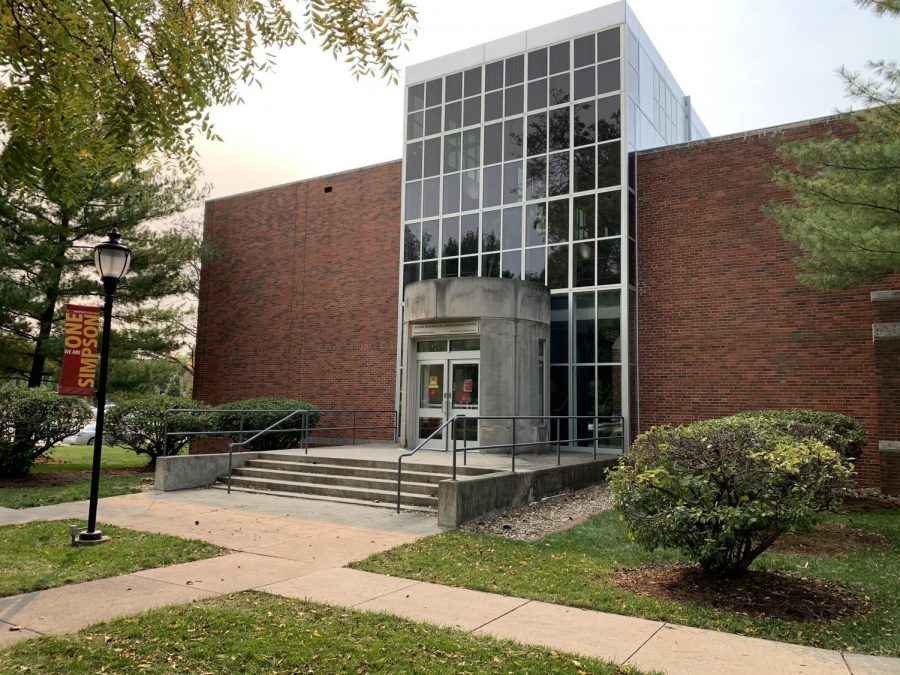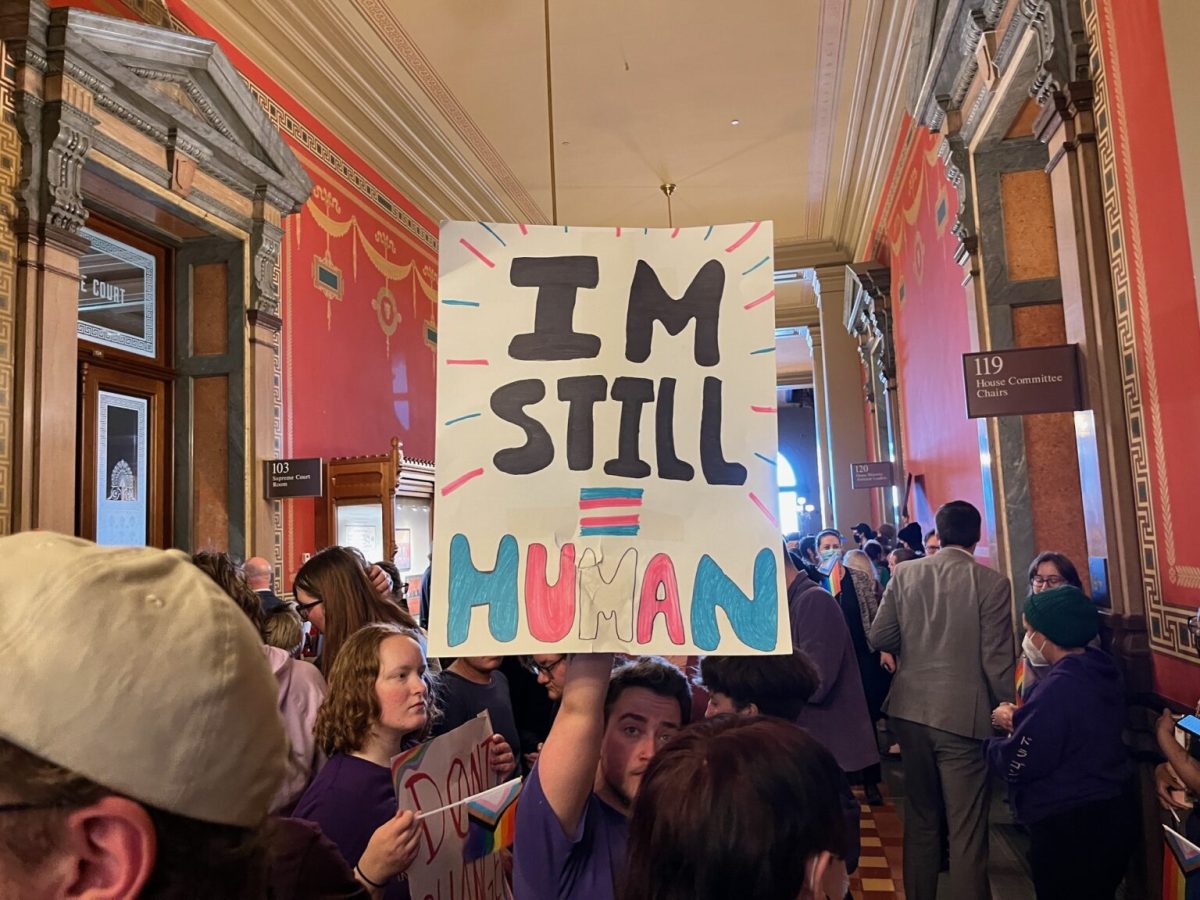Simpson, RLC reaffirm inclusion after the General Conference decision
Photo courtesy of Jonathan Cox | RLC displayed its statement of welcome with rainbow candles after the General Conference made its decision.
March 20, 2019
Simpson College and the Religious Life Community (RLC) are reaffirming the college’s Diversity and Inclusion Statement after the General Conference of the United Methodist Church strengthened restrictions on the roles members of the LGBTQ community may assume in the church.
“Consistent with our educational mission, we recognize ourselves as a community that respects individual identities linked to varying sociocultural characteristics including but not limited to race, ethnicity, gender identity and expression, sexual orientation, national origin, first language, religious or spiritual tradition, age, functional ability, socioeconomic status, physical attributes or familial status,” Simpson’s Statement of Diversity and Inclusion says.
In a statement sent to campus on Feb. 27, President Jay Simmons reiterated the college’s position on inclusion.
“During their February 8, 2019 meeting, the College’s Board of Trustees reviewed the options to be considered in St. Louis. As discussed during that meeting, the Traditionalist Plan is not congruent with the attached Diversity and Inclusion Statement approved by the Board on October 9, 2015. Indeed, this statement reflects the College’s official position and is unaffected by the decision in St. Louis. Simpson will continue to be a community committed to upholding the humanity in each and every one of us,” Simmons said in a statement.
In February about 900 delegates of the United Methodist Church voted to reinforce the current rules in the Book of Discipline regarding the ordination and marriage of the LGBTQ community, although the plan is still being reviewed by the church’s Judicial Council.
“The decision made at the General Conference bears considerable implications for the United Methodist Church, although it is still too early to discern how the decision in St. Louis will affect the Church and its affiliated institutions,” Simmons said. “Regardless of what the future brings in this regard, Simpson will abide by its commitment to welcome anyone who wishes to be here and to celebrate their contributions to our community.”
While Simpson is affiliated with the United Methodist Church, RLC operates independently from the church, even though Chaplain Mara Bailey is appointed to Simpson by the Iowa bishop.
RLC is not a United Methodist congregation on campus, Bailey said.
“I’m appointed to serve here but the expectation of my work is that I’m appointed to serve our entire campus and the whole ethos of United Methodist higher education is that we embrace and value anybody’s spiritual journey whether they desire to make that a part of their time in college or not,” Bailey said.
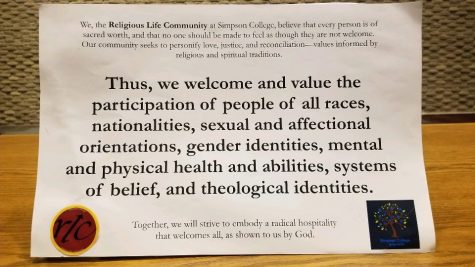
RLC is also reaffirming its statement of welcome, which states that RLC believes everyone is of sacred worth and RLC seeks to “personify love, justice, and reconciliation” as well as welcome all people.
“We do truly believe that anybody is of sacred worth who deserves to have access and be a part of this faith community if they desire. We’re not going to try to change anyone. We don’t think your identity is sinful,” Bailey said. “We believe that you as you are, are beautifully created by God. We welcome all persons regardless of any piece of their identity, be that sexual orientation, gender identity preference or physical ability or our ethnic backgrounds and things like that.”
The decision of the church does not change the function of RLC since it is a student organization and does not marry couples, RLC President Lewis Cox said.
“One of the really beautiful things is it means that nothing will change in RLC,” Cox said. “We have publicly created the statement of inclusion, both our internal one that’s a part of our Constitution, but also we’ve signed onto the campus statement of inclusion that’s been signed by the Board of Trustees, by SGA, by various student groups, RLC included, that basically says that this will continue to be a place of welcome for all people and that includes any demographic you can think of, whether that be sexual orientation or gender identity or affectual orientation or anything like that.”



